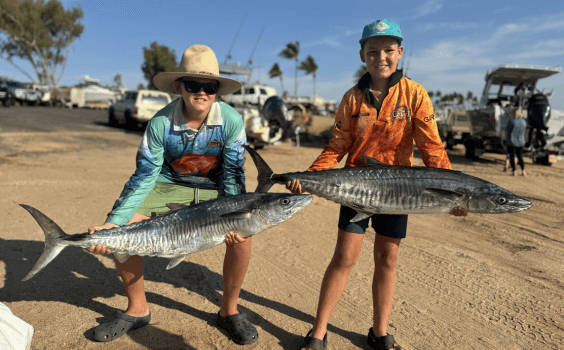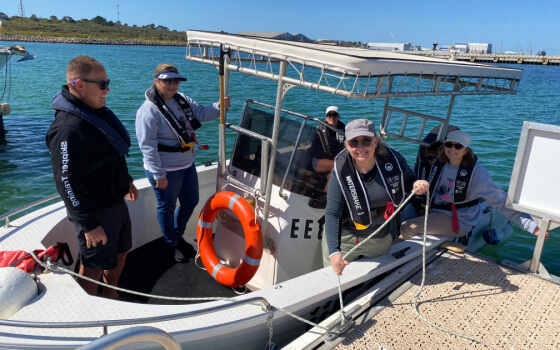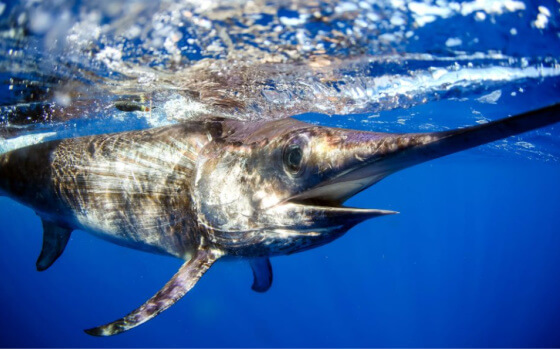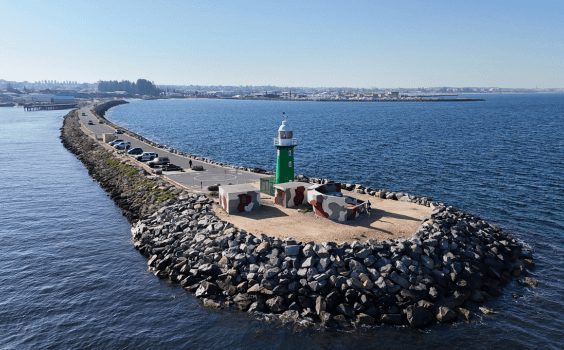Last weekend, recfishing families joined Ozfish Unlimited at the Cockburn Power Boats Association to take part in an exciting seagrass restoration project called ‘Seeds for Snapper’.
The project aims to reseed Cockburn Sounds Seagrass meadows which support a wide variety of important fish species including whiting, pink snapper, garfish, calamari and blue swimmer crabs.
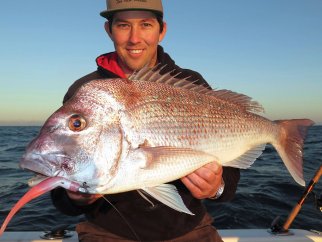
Fishers and divers helped with all elements of the project from the seagrass ‘fruit’ (seeds) collection, placing seeds in tanks with circulating seawater to separate the seed and dispersing of the seed in predetermined locations within Cockburn Sound. It is hoped that one million seeds can be processed, potentially restoring 10,000 m2 (1 Ha) of lost seagrass habitat per annum for the next three years.
The Seeds for Snapper Family Seeding Day builds on last year’s Seeds for Snapper project which saw approximately 200,000 Posidonia australis seeds collected and dispersed over three trial-seeding sites.
Three months after last year’s seeding activities, establishment and survival of the seagrass seedlings ranged between 6.5 per cent and 20 per cent, which is far better than what has been achieved in the past in attempting to establish new Posidonia australis seagrass meadows.
Below you can see the comparison on two dispersal sites.
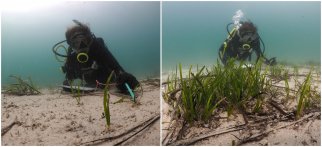
Recent research has demonstrated that direct seeding into areas of lost seagrass is likely to be the most cost effective method that may one day be scaled-up to make the biggest long-term difference. Read about it here.
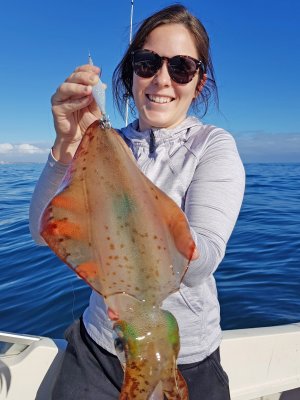
The WA community have a close affiliation with Cockburn Sound, with plenty of good work done previously to protect pink snapper stocks, including pushing for an extension to the annual pink snapper seasonal closure in Cockburn Sound and Warnbro Sound and our famous Snapper Guardians initiative.
The recfishing community greatly values the Cockburn Sound fishery and it’s great to see recfishers once again stepping up to look after the fish habitats that underpin our great fishing experiences.
Cockburn Sound pink snapper and seagrass fact file
Cockburn Sound hosts the largest pink snapper spawning aggregations in the West Coast Bioregion.
The seagrass meadows of Cockburn Sound are well recognised as critical foraging and nursery grounds for pink snapper and other fish, mollusc and crustacean species.
Cockburn Sound’s seagrass meadows have declined by nearly 80 per cent from 4000ha in the 1960’s to less than 1,000ha today.
That’s an area equivalent to 1,840 Optus Stadium football fields of seagrass habitat that has been lost in only a few decades. Important species affected by the seagrass loss include not only pink snapper, but others such as squid, garfish and blue swimmer crabs.
Appreciation of the role seagrass meadows play in providing great fishing opportunities is growing in WA due to increased understanding of the critical link between our seagrass habitats and coastal fisheries.

